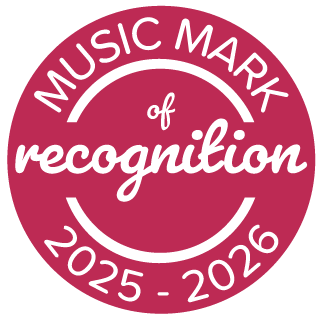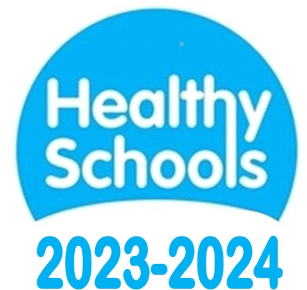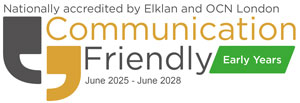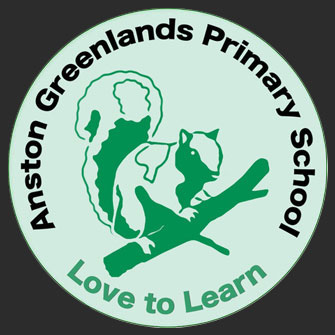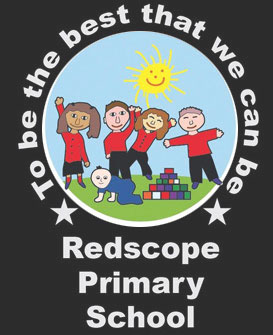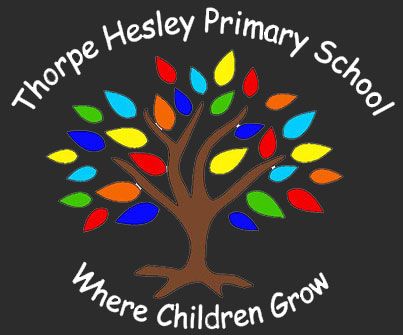The overarching aim for English in the National Curriculum is to promote high standards of literacy by equipping pupils with a strong command of the written and spoken word, and to develop their love of literature through widespread reading for enjoyment. The National Curriculum for English aims to ensure that all pupils:
- read easily, fluently and with good understanding
- develop the habit of reading widely and often, for both pleasure and information
- acquire a wide vocabulary, an understanding of grammar and knowledge of linguistic conventions for reading, writing and spoken language
- appreciate our rich and varied literary heritage
- write clearly, accurately and coherently, adapting their language and style in and for a range of contexts, purposes and audiences
- use discussion in order to learn; they should be able to elaborate and explain clearly their understanding and ideas
- are competent in the arts of speaking and listening, making formal presentations, demonstrating to others and participating in debate
Overview by Year
Year 1
During Year 1, teachers should build on work from the Foundation Stage, making sure that pupils can sound and blend unfamiliar printed words quickly and accurately using the phonic knowledge and skills that they have already learnt. Teachers should also ensure that pupils continue to learn new grapheme-phoneme correspondences (GPCs) and revise and consolidate those learnt earlier. The understanding that the letter(s) on the page represent the sounds in spoken words should underpin pupils’ reading and spelling of all words. This includes common words containing unusual GPCs. The term ‘common exception words’ is used throughout the programmes of study for such words.
Alongside this knowledge of GPCs, pupils need to develop the skill of blending the sounds into words for reading and establish the habit of applying this skill whenever they encounter new words. This will be supported by practising their reading with books consistent with their developing phonic knowledge and skill. At the same time they will need to hear, share and discuss a wide range of high-quality books to develop a love of reading and broaden their vocabulary.
Pupils should be helped to read words without overt sounding and blending after a few encounters. Those who are slow to develop this skill should have extra practice.
Pupils’ writing during Year 1 will generally develop at a slower pace than their reading. This is because they need to encode the sounds they hear in words (spelling skills), develop the physical skill needed for handwriting, and learn how to organise their ideas in writing.
Pupils entering Year 1 who have not yet met the early learning goals for literacy should continue to follow the curriculum for the Early Years Foundation Stage to develop their word reading, spelling and language skills. However, these pupils should follow the Year 1 programme of study in terms of the books they listen to and discuss, so that they develop their vocabulary and understanding of grammar, as well as their knowledge more generally across the curriculum. If they are still struggling to decode and spell, they need to be taught to do this urgently through a rigorous and systematic phonics programme so that they catch up rapidly.
Teachers should ensure that their teaching develops pupils’ oral vocabulary as well as their ability to understand and use a variety of grammatical structures, giving particular support to pupils whose oral language skills are insufficiently developed.
Specific requirements for pupils to discuss what they are learning and to develop their wider skills in spoken language form part of this programme of study.
Year 2
By the beginning of Year 2, pupils should be able to read all common graphemes. They should be able to read unfamiliar words containing these graphemes, accurately and without undue hesitation, by sounding them out in books that are matched closely to each pupil’s level of word reading. They should also be able to read many common words containing GPCs taught so far, such as shout, hand, stop, or dream, without needing to blend the sounds out loud first. Pupils’ reading of common exception words, such as you, could, many, or people, should be secure. Pupils will increase their fluency by being able to read these words easily and automatically. Finally, pupils should be able to retell some familiar stories that have been read to and discussed with them or that they have acted out during Year 1.
During Year 2, teachers should continue to focus on establishing pupils’ accurate and speedy word reading skills. They should also make sure that pupils listen to and discuss a wide range of stories, poems, plays and information books; this should include whole books. The sooner that pupils can read well and do so frequently, the sooner they will be able to increase their vocabulary, comprehension and their knowledge across the wider curriculum.
In writing, pupils at the beginning of Year 2 should be able to compose individual sentences orally and then write them down. They should be able to spell correctly many of the words covered in Year 1. They should also be able to make phonically-plausible attempts to spell words they have not yet learnt. Finally, they should be able to form individual letters correctly, so establishing good handwriting habits from the beginning.
It is important to recognise that pupils begin to meet extra challenges in terms of spelling during Year 2. Increasingly, they should learn that there is not always an obvious connection between the way a word is said and the way it is spelt. Variations include different ways of spelling the same sound, the use of so-called silent letters and groups of letters in some words and, sometimes, spelling that has become separated from the way that words are now pronounced, such as the ‘le’ ending in table. Pupils’ motor skills also need to be sufficiently advanced for them to write down ideas that they may be able to compose orally. In addition, writing is intrinsically harder than reading: pupils are likely to be able to read and understand more complex writing (in terms of its vocabulary and structure) than they are capable of producing themselves.
For pupils who do not have the phonic knowledge and skills they need for Year 2, teachers should use the Year 1 programmes of study for word reading and spelling so that pupils’ word reading skills catch up. However, teachers should use the Year 2 programme of study for comprehension so that these pupils hear and talk about new books, poems, other writing, and vocabulary with the rest of the class.
Specific requirements for pupils to discuss what they are learning and to develop their wider skills in spoken language form part of this programme of study.
Years 3 & 4
By the beginning of Year 3, pupils should be able to read books written at an age- appropriate interest level. They should be able to read them accurately and at a speed that is sufficient for them to focus on understanding what they read rather than on decoding individual words. They should be able to decode most new words outside their spoken vocabulary, making a good approximation to the word’s pronunciation. As their decoding skills become increasingly secure, teaching should be directed more towards developing the breadth and depth of their reading, making sure that they become independent, fluent and enthusiastic readers who read widely and frequently. They should be developing their understanding and enjoyment of stories, poetry, plays and non-fiction, and learning to read silently. They should also be developing their knowledge and skills in reading non-fiction about a wide range of subjects. They should be learning to justify their views about what they have read: with support at the start of Year 3 and increasingly independently by the end of Year 4.
Pupils should be able to write down their ideas with a reasonable degree of accuracy and with good sentence punctuation. Teachers should therefore be consolidating pupils’ writing skills, their grasp of sentence structure and their knowledge of linguistic terminology. Teaching them to develop as writers involves increasing their competence as well as teaching them to enhance the effectiveness of what they write. Teachers should make sure that pupils build on what they have learnt, particularly in terms of the range of their writing and the more varied grammar from which they can draw to express their ideas. Pupils should be beginning to understand how writing can be different from speech. Joined handwriting should be the norm; pupils should be able to use it fast enough to keep pace with what they want to say.
Pupils’ spelling of common words should be correct, including exception words and other words that they have learnt (see Appendix 1). Pupils should spell words as accurately as possible using their phonic knowledge and other knowledge of spelling, such as morphology and etymology.
Most pupils will not need further direct teaching of word reading skills: they are able to decode unfamiliar words accurately, and need very few repeated experiences of this before the word is stored in such a way that they can read it without overt sound- blending.
As in Key Stage 1, however, pupils who are still struggling to decode need to be taught to do this urgently through a rigorous and systematic phonics programme so that they catch up rapidly with their peers. If they cannot decode independently and fluently, they will find it increasingly difficult to understand what they read and to write down what they want to say. As far as possible, however, they should follow the Year 3 and 4 programme of study in terms of listening to new books, hearing and learning new vocabulary and grammatical structures, and discussing these.
Specific requirements for pupils to discuss what they are learning and to develop their wider skills in spoken language form part of this programme of study. In Years 3 and 4, pupils should become more familiar with and confident in using language in a greater variety of situations, for a variety of audiences and purposes, including through drama, formal presentations and debate.
Years 5 & 6
By the beginning of Year 5, pupils should be able to read aloud a wider range of poetry and books written at an age-appropriate interest level with accuracy and at a reasonable speaking pace. They should be able to read most words effortlessly and to work out how to pronounce unfamiliar written words with increasing automaticity. If the pronunciation sounds unfamiliar, they should ask for help in determining both the meaning of the word and how to pronounce it correctly. They should be able to prepare readings, with appropriate intonation to show their understanding, and should be able to summarise and present a familiar story in their own words. They should be reading widely and frequently, outside as well as in school, for pleasure and information. They should be able to read silently, and then discuss what they have read.
Pupils should be able to write down their ideas quickly. Their grammar and punctuation should be broadly accurate. Pupils’ spelling of most words taught so far should be accurate and they should be able to spell words that they have not yet been taught by using what they have learnt about how spelling works in English.
During Years 5 and 6, teachers should continue to emphasise pupils’ enjoyment and understanding of language, especially vocabulary, to support their reading and writing. Pupils’ knowledge of language, gained from stories, plays, poetry, non-fiction and textbooks, will support their increasing fluency as readers, their facility as writers, and their comprehension. As in Years 3 and 4, pupils should be taught to enhance the effectiveness of their writing as well as their competence.
It is essential that pupils whose decoding skills are poor are taught through a rigorous and systematic phonics programme so that they catch up rapidly with their peers in terms of their decoding and spelling. However, as far as possible, these pupils should follow the Year 5 and 6 programme of study in terms of listening to books and other writing that they have not come across before, hearing and learning new vocabulary and grammatical structures, and having a chance to talk about all of these.
By the end of Year 6, pupils’ reading and writing should be sufficiently fluent and effortless for them to manage the general demands of the curriculum in Year 7, across subjects and not just in English, but there will continue to be a need for pupils to learn subject-specific vocabulary. They should be able to reflect their understanding of the audience for and purpose of their writing by selecting appropriate vocabulary and grammar. Teachers should prepare pupils for secondary education by ensuring that they can consciously control the structure of sentences in their writing and understand why sentences are constructed as they are. This involves consolidation, practice and discussion of language.
Specific requirements for pupils to discuss what they are learning and to develop their wider skills in spoken language form part of this programme of study. In Years 5 and 6, pupils’ confidence, enjoyment and mastery of language should be extended through public speaking, performance and debate.
Reading
As a school, we encourage all children to read at home with an adult at least three times a week – more if possible.
All children should bring home a book from school however our older children do often start to enjoy reading their own books from home. These children may be ‘free readers’ but this does not mean that they no longer need to read at home with an adult, it is still important.
As well as reading with your child on a regular basis, it is important to pose questions about the text read to check their understanding as reading and comprehension both run alongside each other.
All teachers keep a strict weekly record of who has and has not read. Each week pupils are given one of our weekly reward tickets if they have read 3 or more times. These tickets are collected and counted everyweek! Each class has a target on tickets to reach every half term, if they do the reach this target they get a reward afternoon. These rewards can include afteroons where classes; watch movies, have an event, a party, baking or even a possible visit. In every class there is tracker up and visisble so everyone can see where they are at with their class tickets.
Please ensure that your child has their reading record in school each day and that this is kept up to date.
We also do lots of reading in school; we have daily reading sessions in class and also have a story slot at the end of the day where teachers share a variety of different genres. These books are are sepereate from our guided or reciprical reading texts and our year group texts which are a focus for Literacy. This allows us to escape through a new text and explore even more new worlds!
On every door in school is a ‘Reading Journal’ so that visitors or people passing can see all the wonderful books that we have been reading during our story time. Every time we are reading a new book we pop this and as a class we review it at the end.
Oxford Reading Owls
All classes have access to an Oxford Reading Owl log in, this means that you can access to loads of age related texts at your fingers tips! If you are unsure of your child’s log in then just let your child’s teacher know and they will send it out again for you.
Spelling
In both Key Stage 1 and Key Stage 2, the children are set for spelling. This enables staff to teach the different spelling rules at a more appropriate level. Staff work together in year groups to organise sets based on children’s current ability. The sets are fluid and children can be/are moved when necessary.
The spelling session happens every Friday morning 9-9.45am and consists of quality first teaching, ensuring that the focus is placed upon the teaching and learning of spelling rules rather than just the memorising of words. Teachers aim to make spelling fun and many of the activities are engaging and practical.
A spelling meeting for parents will be held in the Spring term, please keep an eye out on the newsletter for the date.
Supporting your child at home
Developing children’s literacy skills is dependent on the mastery of several areas in the English language. Children can build up their literacy skills in a number of ways, from practical hands-on activities to interactive PC games. Below are just a few ways to raise your child’s confidence and competency in the subject.
Get children to emulate the style of an author
By the time children reach the age of 6, they may have already started to develop a preference for a particular author or genre. Get children to ‘Magpie’ or borrow literary devices, vocabulary, plots and story structure ideas from the books they read on a regular basis. Children can then apply the information they have gleaned to their own extended pieces of writing.
Discussion about the vocabulary choices made by the author and the impact of these is also vital.
Encourage children to write a journal
Writing in a journal or diary on a daily or weekly basis will ensure that children will have regular opportunities to improve their writing skills. Maybe try giving children ‘free writing’ books and, as their work is not assessed, children will feel they have the freedom to choose what they write about – this often leads to a more creative piece of writing. A perfect time to start a journal is during the school holidays and I’m sure your child’s class teacher would enjoy reading this upon returning to school.
Encourage children to write at every opportunity
If children are intimidated by longer pieces of writing, simply get them to tackle shorter pieces. Children can help you write the weekly shopping list or write thank-you letters to friends/family members that have given them birthday presents. If families take a holiday during school breaks, children can write postcards to loved ones using the same structures they use for letter writing.
Think about the provision that is available to your child/children at home. Invest in paper and a range of pens and pencils to engage children and encourage them to write rather than play on their iPads and phones. The increase in the number of children, particularly younger children, using laptops, phones and iPads has had a significant impact on their fine motor skills.
Useful Links and Resources
Immersing children in literacy activities can help them improve their reading, writing, vocabulary, grammar, and spelling skills. There are a number of organisations and sites that provide online activities, teaching tips, and free books for children.
Literacy
National Children’s Literacy Website
This non-profit organisation is dedicated to improving and promoting children’s literacy in child care and home settings. Helpful materials on the National Children’s Literacy Website include general literacy tips, advice on teaching children to read, educational activities, story-time tips, and links to additional resources.
StoryPlace
StoryPlace is a digital library created specifically for children. Library materials include free online books, online activities, take-home activities, and reading lists for preschool and elementary students.
Starfall
Starfall relies on phonics to help children learn how to read. The site offers movies, interactive games, and engaging activities for readers in pre-k to second grade.
International Children’s Digital Library
This online library hosts nearly 5,000 high-quality digital books in more than 50 different languages.
Storynory
This site publishes a new audio story each week. Storynory offers both classic stories and original tales that have been adapted from stories around the world.
Grammar Girl
Grammar Girl Mignon Fogarty provides a free podcast that covers common grammar mistakes and issues. Each podcast episode lasts only a few minutes and provides easy-to-understand grammar advice and tips.
The Story Kitchen
Created by Bruce Van Patter, The Story Kitchen offers dozens of story starters to help inspire young writers. Each story beginning consists of a few paragraphs with a note at the end that encourages site visitors to finish the story.








